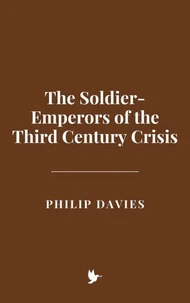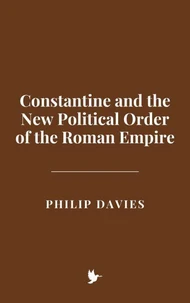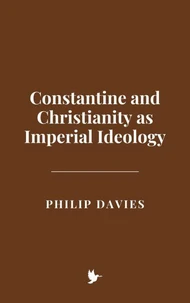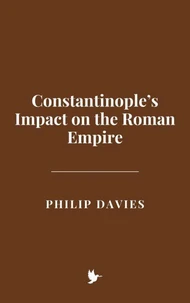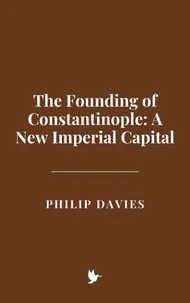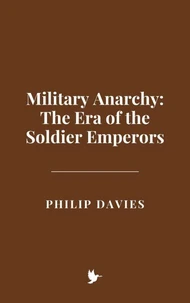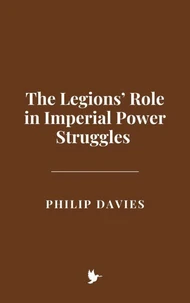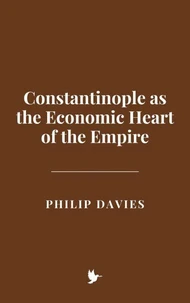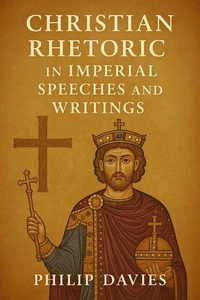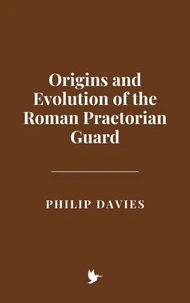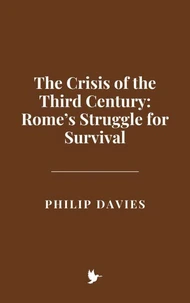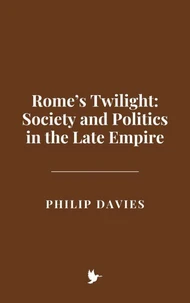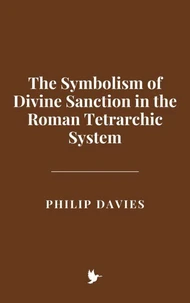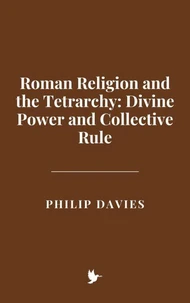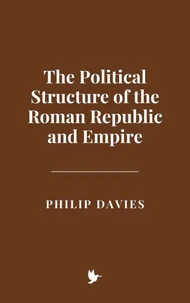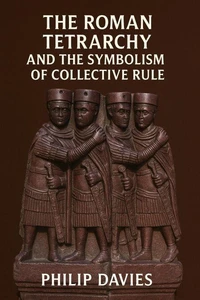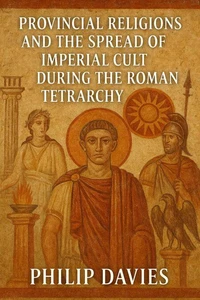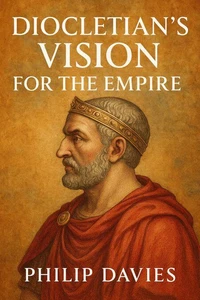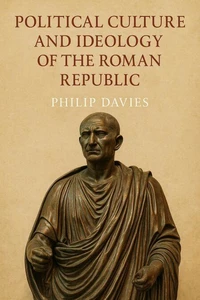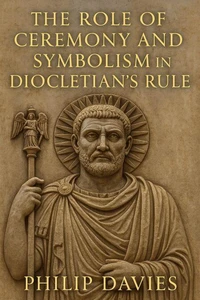The Crisis of the Third Century and Its Impact on Roman Religious Authority
Par :Formats :
Disponible dans votre compte client Decitre ou Furet du Nord dès validation de votre commande. Le format ePub est :
- Compatible avec une lecture sur My Vivlio (smartphone, tablette, ordinateur)
- Compatible avec une lecture sur liseuses Vivlio
- Pour les liseuses autres que Vivlio, vous devez utiliser le logiciel Adobe Digital Edition. Non compatible avec la lecture sur les liseuses Kindle, Remarkable et Sony
 , qui est-ce ?
, qui est-ce ?Notre partenaire de plateforme de lecture numérique où vous retrouverez l'ensemble de vos ebooks gratuitement
Pour en savoir plus sur nos ebooks, consultez notre aide en ligne ici
- FormatePub
- ISBN8231424962
- EAN9798231424962
- Date de parution23/05/2025
- Protection num.pas de protection
- Infos supplémentairesepub
- ÉditeurWalzone Press
Résumé
The Crisis of the Third Century and Its Impact on Roman Religious Authority by Philip Davies offers a comprehensive and erudite exploration of one of the most tumultuous periods in Roman history-a century marked by political fragmentation, military upheaval, economic decline, and social anxiety-and its profound effects on the religious structures that underpinned imperial power. Through meticulous analysis of historical events, primary sources, and scholarly interpretations, this work reveals how the fabric of Roman religious authority was challenged, transformed, and ultimately redefined during the third century CE.
Davies traces the decline of the Imperial cult amid the chaos of competing emperors and regional breakaway states, illustrating how religious legitimacy fractured alongside political unity. The book delves into the flourishing of religious syncretism and the rise of mystery cults and Eastern religions, which offered spiritual refuge to an empire in crisis. Central to the narrative is Christianity's growth during persecution and instability, highlighting its theological developments, organizational consolidation, and eventual ascendancy as a dominant religious force.
Philosophical debates between pagan intellectuals and Christian theologians are examined as reflective of the broader contest for religious and cultural authority. The restoration of imperial order under Diocletian and the Tetrarchy is portrayed as both a political and religious endeavor, utilizing sacral symbolism and ritual to reassert divine legitimacy amid enduring pluralism. Ultimately, the book argues that the third century crisis catalyzed a long-term reconfiguration of Roman religious authority, setting the stage for the empire's transformation into a Christianized polity and leaving an indelible mark on the spiritual and political history of late antiquity.
Combining rigorous scholarship with accessible narrative, this volume is essential reading for historians, theologians, and anyone interested in the intersection of religion and power during a pivotal era of world history.
Davies traces the decline of the Imperial cult amid the chaos of competing emperors and regional breakaway states, illustrating how religious legitimacy fractured alongside political unity. The book delves into the flourishing of religious syncretism and the rise of mystery cults and Eastern religions, which offered spiritual refuge to an empire in crisis. Central to the narrative is Christianity's growth during persecution and instability, highlighting its theological developments, organizational consolidation, and eventual ascendancy as a dominant religious force.
Philosophical debates between pagan intellectuals and Christian theologians are examined as reflective of the broader contest for religious and cultural authority. The restoration of imperial order under Diocletian and the Tetrarchy is portrayed as both a political and religious endeavor, utilizing sacral symbolism and ritual to reassert divine legitimacy amid enduring pluralism. Ultimately, the book argues that the third century crisis catalyzed a long-term reconfiguration of Roman religious authority, setting the stage for the empire's transformation into a Christianized polity and leaving an indelible mark on the spiritual and political history of late antiquity.
Combining rigorous scholarship with accessible narrative, this volume is essential reading for historians, theologians, and anyone interested in the intersection of religion and power during a pivotal era of world history.
The Crisis of the Third Century and Its Impact on Roman Religious Authority by Philip Davies offers a comprehensive and erudite exploration of one of the most tumultuous periods in Roman history-a century marked by political fragmentation, military upheaval, economic decline, and social anxiety-and its profound effects on the religious structures that underpinned imperial power. Through meticulous analysis of historical events, primary sources, and scholarly interpretations, this work reveals how the fabric of Roman religious authority was challenged, transformed, and ultimately redefined during the third century CE.
Davies traces the decline of the Imperial cult amid the chaos of competing emperors and regional breakaway states, illustrating how religious legitimacy fractured alongside political unity. The book delves into the flourishing of religious syncretism and the rise of mystery cults and Eastern religions, which offered spiritual refuge to an empire in crisis. Central to the narrative is Christianity's growth during persecution and instability, highlighting its theological developments, organizational consolidation, and eventual ascendancy as a dominant religious force.
Philosophical debates between pagan intellectuals and Christian theologians are examined as reflective of the broader contest for religious and cultural authority. The restoration of imperial order under Diocletian and the Tetrarchy is portrayed as both a political and religious endeavor, utilizing sacral symbolism and ritual to reassert divine legitimacy amid enduring pluralism. Ultimately, the book argues that the third century crisis catalyzed a long-term reconfiguration of Roman religious authority, setting the stage for the empire's transformation into a Christianized polity and leaving an indelible mark on the spiritual and political history of late antiquity.
Combining rigorous scholarship with accessible narrative, this volume is essential reading for historians, theologians, and anyone interested in the intersection of religion and power during a pivotal era of world history.
Davies traces the decline of the Imperial cult amid the chaos of competing emperors and regional breakaway states, illustrating how religious legitimacy fractured alongside political unity. The book delves into the flourishing of religious syncretism and the rise of mystery cults and Eastern religions, which offered spiritual refuge to an empire in crisis. Central to the narrative is Christianity's growth during persecution and instability, highlighting its theological developments, organizational consolidation, and eventual ascendancy as a dominant religious force.
Philosophical debates between pagan intellectuals and Christian theologians are examined as reflective of the broader contest for religious and cultural authority. The restoration of imperial order under Diocletian and the Tetrarchy is portrayed as both a political and religious endeavor, utilizing sacral symbolism and ritual to reassert divine legitimacy amid enduring pluralism. Ultimately, the book argues that the third century crisis catalyzed a long-term reconfiguration of Roman religious authority, setting the stage for the empire's transformation into a Christianized polity and leaving an indelible mark on the spiritual and political history of late antiquity.
Combining rigorous scholarship with accessible narrative, this volume is essential reading for historians, theologians, and anyone interested in the intersection of religion and power during a pivotal era of world history.




